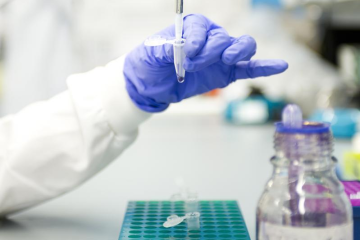Strategic grant
Multi-laboratory validation of a new animal product-free test guideline addition for the in vitro micronucleus test

At a glance
Completed
Award date
October 2024 - March 2025
Grant amount
£99,947
Principal investigator
Professor Victoria Hutter
Co-investigator(s)
Institute
University of Hertfordshire
R
- Replacement
